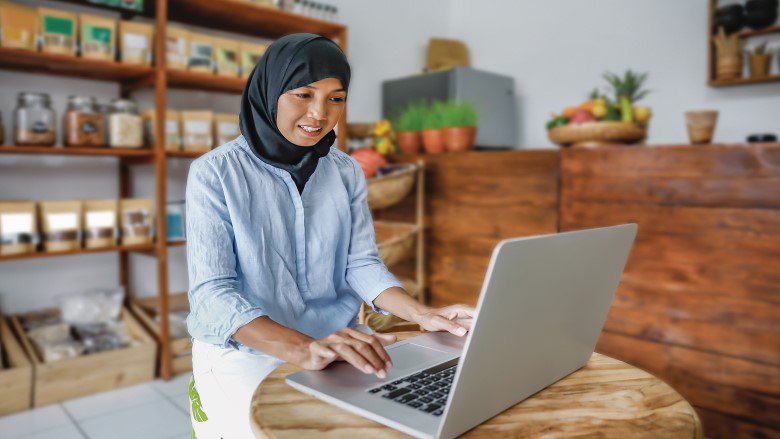Highlights
- The World Bank Group is committed to supporting women entrepreneurs in Southeast Asia.
- The Bank is focused on improving access to networks, policy and regulatory reform, and data and research.
- The Bank is working with partners, such as the Australia-World Bank Group Partnership, to increase women’s access to finance and build networks.
- By supporting women’s entrepreneurship, the Bank aims to promote inclusive and sustainable economic growth in the region.
In Southeast Asia, women-owned businesses make up a significant proportion of the small and medium-sized enterprise (SME) sector. However, these businesses tend to be concentrated in certain sectors and are often smaller in size than their male-owned counterparts. Women entrepreneurs in the region also face a number of challenges, including limited access to finance, markets, and networks.
Despite these challenges, women entrepreneurs in Southeast Asia are innovative and resilient. They have found ways to overcome barriers and create successful businesses that contribute to their families, communities, and economies. The World Bank Group is committed to supporting women entrepreneurs in the region and helping them to unlock their full potential.
Challenges and Opportunities
Women entrepreneurs in Southeast Asia face a range of challenges that limit their ability to start and grow businesses. Some of the key challenges include:
- Access to Finance: Women-owned businesses often face more difficulty accessing finance than their male-owned counterparts. This is due to a variety of factors, including a lack of collateral, lower levels of financial literacy, and gender biases in the financial sector.
- Access to Markets: Women-owned businesses often struggle to access new markets and customers. This can be due to a lack of networks and contacts, as well as biases and stereotypes about women’s abilities as business owners.
- Legal and Regulatory Barriers: Women-owned businesses may face legal and regulatory barriers that make it difficult for them to start and grow their businesses. These barriers can include restrictive laws and regulations, as well as gender biases in the legal system.
- Social and Cultural Constraints: Women entrepreneurs may also face social and cultural constraints that limit their ability to start and grow businesses. These constraints can include gender stereotypes, cultural norms that restrict women’s mobility and participation in the workforce, and family responsibilities that make it difficult to balance work and family life.
Despite these challenges, women entrepreneurs in Southeast Asia also have a number of unique opportunities. For example:
- Growing SME Sector: The SME sector in Southeast Asia is growing rapidly, creating new opportunities for women entrepreneurs to start and grow businesses.
- Technology and Innovation: Women entrepreneurs in the region are using technology and innovation to overcome barriers and create successful businesses. For example, many women are using social media platforms to market their products and reach new customers.
- Regional Integration: Southeast Asia is becoming increasingly integrated, with greater trade and investment flows between countries. This integration can create new opportunities for women entrepreneurs to access new markets and customers.
The World Bank Group’s Support for Women Entrepreneurs in Southeast Asia
The World Bank Group is committed to supporting women entrepreneurs in Southeast Asia and helping them to overcome the challenges they face. Some of the ways in which we are supporting women entrepreneurs include:
- Access to Finance: We are working to increase women’s access to finance by supporting financial institutions that provide loans and other financial products to women-owned businesses. We are also working to increase financial literacy among women entrepreneurs.
- Access to Markets:Access to Networks: We are supporting women entrepreneurs in Southeast Asia to build networks and access mentorship opportunities. We believe that networking and mentorship can be powerful tools for helping women entrepreneurs to overcome barriers and succeed in business.
- Policy and Regulatory Reform: We are working with governments and other stakeholders in the region to promote policy and regulatory reform that supports women’s entrepreneurship. This includes advocating for legal and regulatory frameworks that promote gender equality and support women-owned businesses.
- Data and Research: We are investing in data and research to better understand the challenges and opportunities facing women entrepreneurs in Southeast Asia. This will help us to design more effective interventions and support programs for women entrepreneurs in the region.
The World Bank Group is also working with a range of partners to support women entrepreneurs in Southeast Asia. For example, we are working with the Australia-World Bank Group Partnership to support women’s entrepreneurship in the region. This partnership aims to increase women’s access to finance, build networks, and promote policy and regulatory reform that supports women-owned businesses.
Ultimately, our goal is to help women entrepreneurs in Southeast Asia to unlock their full potential and contribute to more inclusive and sustainable economic growth in the region. We believe that supporting women’s entrepreneurship is not only the right thing to do, but also makes good economic sense. When women have equal access to opportunities and resources, they can be powerful drivers of economic growth and development.
If you are a woman entrepreneur in Southeast Asia, we encourage you to explore the resources and support available through the World Bank Group and our partners. Together, we can work to create a more equal and inclusive business environment in the region.




